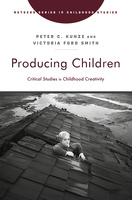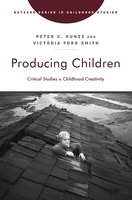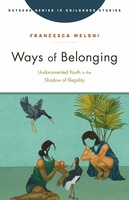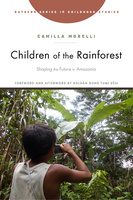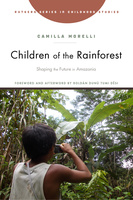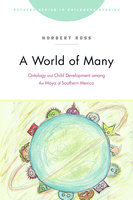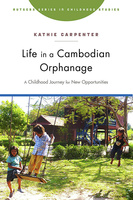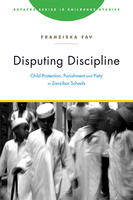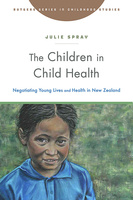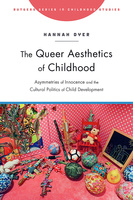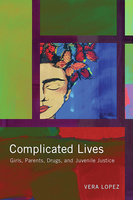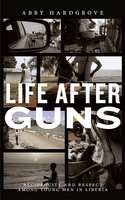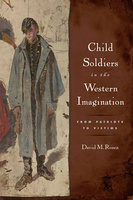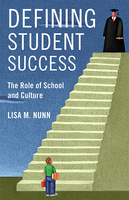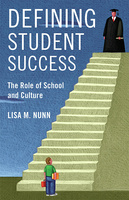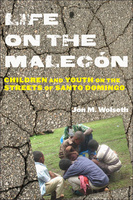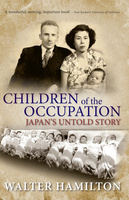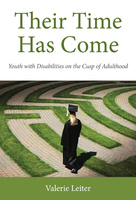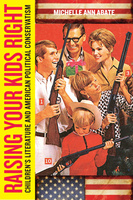Producing Children
Critical Studies in Childhood Creativity
Children’s culture is not only culture for children; it’s culture by children — yet scholars of children’s culture overwhelmingly center work by adults for children. Producing Children acknowledges and theorizes children as cultural producers, underscoring how such creativity empowers children as active participants in their own culture, and helps us to reconceive our understandings of children themselves.
Producing Children
Critical Studies in Childhood Creativity
Children’s culture is not only culture for children; it’s culture by children — yet scholars of children’s culture overwhelmingly center work by adults for children. Producing Children acknowledges and theorizes children as cultural producers, underscoring how such creativity empowers children as active participants in their own culture, and helps us to reconceive our understandings of children themselves.
Children as Social Butterflies
Navigating Belonging in a Diverse Swiss Kindergarten
Children as Social Butterflies offers an analysis of how children negotiate social belonging. Ursina Jaeger followed the children of a kindergarten class in a stigmatized and diverse neighborhood for several years, both inside and outside of school. Along with giving vivid insights into the children's everyday lives, she examines how social differentiation is learned in diverse societies.
Care and Agency
The Andean Community through the Eyes of Children
This book describes the lives of children in rural communities of the Andes Mountains of Peru. It foregrounds the children’s own perceptions and feelings, so far as they can be known by researchers using ethnographic methods. It shows the great variety of Andean childhoods – some happy, others harsh and demanding – and suggests the options children face: follow the many to migrate to the city or risk their hopes on a better future in the rural setting.
China's Left-Behind Children
Caretaking, Parenting, and Struggles
Ways of Belonging
Undocumented Youth in the Shadow of Illegality
Between Self and Community
Children’s Personhood in a Globalized South Korea
Children of the Rainforest
Shaping the Future in Amazonia
Children of the Rainforest
Shaping the Future in Amazonia
A World of Many
Ontology and Child Development among the Maya of Southern Mexico
Life in a Cambodian Orphanage
A Childhood Journey for New Opportunities
Disputing Discipline
Child Protection, Punishment, and Piety in Zanzibar Schools
The Children in Child Health
Negotiating Young Lives and Health in New Zealand
Belonging and Becoming in a Multicultural World
Refugee Youth and the Pursuit of Identity
The Queer Aesthetics of Childhood
Asymmetries of Innocence and the Cultural Politics of Child Development
All Together Now
American Holiday Symbolism Among Children and Adults
You've Always Been There for Me
Understanding the Lives of Grandchildren Raised by Grandparents
Youth in Postwar Guatemala
Education and Civic Identity in Transition
Complicated Lives
Girls, Parents, Drugs, and Juvenile Justice
Life after Guns
Reciprocity and Respect among Young Men in Liberia
Children as Caregivers
The Global Fight against Tuberculosis and HIV in Zambia
Why Afterschool Matters
City Kids
Transforming Racial Baggage
Fantasies of Neglect
Imagining the Urban Child in American Film and Fiction
Trafficked Children and Youth in the United States
Reimagining Survivors
Race among Friends
Exploring Race at a Suburban School
Child Soldiers in the Western Imagination
From Patriots to Victims
Childhood in a Sri Lankan Village
Shaping Hierarchy and Desire
Kids in the Middle
How Children of Immigrants Negotiate Community Interactions for Their Families
Defining Student Success
The Role of School and Culture
Defining Student Success
The Role of School and Culture
Life on the Malecón
Children and Youth on the Streets of Santo Domingo
Life on the Malecón is a narrative ethnography of the lives of street children and youth living in Santo Domingo, Dominican Republic, and the non-governmental organizations that provide social services for them. Writing from the perspective of an anthropologist working as a street educator with a child welfare organization, Jon M. Wolseth follows the intersecting lives of children, the institutions they come into contact with, and the relationships they have with each other, their families, and organization workers.
Children of the Occupation
Japan's Untold Story
Following World War II, the Allied Powers occupied Japan from 1945 to 1952, leaving thousands of children of Japanese mothers fathered by men from Australia, the United States, New Zealand, India, and Britain. These mixed-race offspring, and often their mothers, faced intense discrimination. Based on interviews with or research on 150 konketsuji—a now-taboo word for "mixed-blood" Japanese—journalist Walter Hamilton presents vivid first-person accounts of these adults as they remember their experiences of childhood loss.
Ambivalent Encounters
Childhood, Tourism, and Social Change in Banaras, India
This ethnographic study brings together scholarship on the anthropology of childhood, tourism, consumption, and exchange to examine how and why children working as unlicensed peddlers and tourist guides along the waterfront of Banaras, India, a popular and iconic tourist destination, elicit such powerful reactions from western visitors and locals in their community and explores how the children themselves experience their work and render it meaningful.
Learning Race, Learning Place
Shaping Racial Identities and Ideas in African American Childhoods
Erin N. Winkler uses in-depth interviews with an economically diverse group of African American children and their mothers to reorient the way we look at how children develop their ideas about race. She shows the importance of considering this process from children’s points of view and listening to their interpretations of their experiences. The roles of gender, skin tone, colorblind rhetoric, peers, family, media, school, and, especially, place in developing children’s racial identities and ideas are also examined.
Learning the Hard Way
Masculinity, Place, and the Gender Gap in Education
In Learning the Hard Way, Edward W. Morris explores and analyzes detailed ethnographic data to examine the purported gender gap between boys and girls in educational achievement at two low-income high schools—one rural and predominantly white, the other urban and mostly African American. He explains how race, class, and geographic location combine to influence and complicate the construction of gender identities in high school students and affect the respective academic performance of the students he studied.
Learning the Hard Way
Masculinity, Place, and the Gender Gap in Education
In Learning the Hard Way, Edward W. Morris explores and analyzes detailed ethnographic data to examine the purported gender gap between boys and girls in educational achievement at two low-income high schools—one rural and predominantly white, the other urban and mostly African American. He explains how race, class, and geographic location combine to influence and complicate the construction of gender identities in high school students and affect the respective academic performance of the students he studied.
Their Time Has Come
Youth with Disabilities on the Cusp of Adulthood
Valerie Leiter argues that there are crucial missing links between federal disability policies and youth’s lives. Her argument is based on thorough examination of federal disability policy and interviews with young people with disabilities, their parents, and rehabilitation professionals. Attention is given to the diversity of expectations, the resources available to them, and the impact of federal policy and public and private attitudes on their transition to adulthood.
Girlhood
A Global History
Raising Your Kids Right
Children's Literature and American Political Conservatism
Highlighting the works of William Bennett, Lynne Cheney, Bill O’Reilly, and others on the American political right, Michelle Ann Abate brings together such diverse fields as cultural studies, literary criticism, political science, childhood studies, brand marketing, and the cult of celebrity. Raising Your Kids Right dispels lingering societal attitudes that narratives for young readers are unworthy of serious political study by examining a variety of texts that offer information, ideology, and even instructions on how to raise kids right, not just figuratively but politically.

